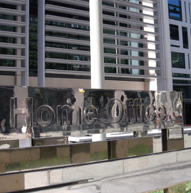In the January print issue of Professional Security magazine, with an eye on the general election in May we featured the Liberal Democrats and Labour; so to round up all the main political parties, Mark Rowe reviews here the main party in the Coalition since 2010, the Conservatives.
Of most direct interest to the private security sector has been what the Home Office was to do to the Security Industry Authority. Ultimately, at least for this parliament, the Coalition did not complete what it set out to, in the autumn of 2010; namely to make a ‘new regulatory regime’. The proposed business licensing, besides the licensing of individuals that the SIA has done since 2005, should have become law in April. It got as far as a timetable, which was postponed last year. Likewise in the summer of 2013 Home Secretary Theresa May announced that private investigators (PIs) would be licenced, by the SIA; details have not followed. Last month, the SIA reported that statutory licensing of private security businesses, and PIs, would come into force ‘as soon as possible’ during the next Parliamentary session; in other words, only after the May election. While that did not consider what the winning political party, of whatever colour, might have to say, ever since the original Private Security Industry Act 2001 industry regulation and the SIA has been largely free of party politics. Likewise, while Scotland and Northern Ireland came to SIA badging later than England and Wales, it’s assumed that a UK-wide regime will continue. As a measure of how the Coalition’s SIA reforms ran out of steam, in October the Government unusually did not put up a ministerial speaker for the SIA annual conference – not even to give a message by video, rather than in person, as seen at some earlier conferences.
Police cuts
Another theme of the Coalition years has been public sector austerity; in plainer English, cuts to the public sector, including police. While this could mean work for private contractors, as police keep to themselves only the core work that requires warranted powers, HM Inspectorate of Constabulary (HMIC) has found fragmented outsourcing as police forces make local arrangements, as Professional Security reported in November. A need for police to make deep cuts has led to calls for fewer, more regional, police forces, an idea taken up but dropped during the previous Labour Government. In a speech last year Theresa May encouraged police and other 999 services to integrate. As a HMIC report put it, ‘extensive collaboration is not taking place in most forces, and only a few are achieving substantial savings through it’. The Coalition can point to work against ‘modern slavery’, as featured last year by our columnist Jim Gannon; and the setting up of the National Crime Agency (NCA), instead of Labour’s Serious and Organised Crime Agency (SOCA). As for counter-terrorism, the Coalition can point to a secure and safe London Olympics, and work promoting security products and services for export, seeking to take as large a share of the world market as the UK enjoys in the defence sector (20pc).
Cyber
As we’ve reported, the Government has been wont to publish strategies: in space security, maritime security and (in November 2011) cyber-security. It set up a National Cyber Crime Unit within the NCA in 2013; and carried on developing the national reporting centre for fraud, Action Fraud. In March the Government set up CERT-UK, featured last issue, to lead on cyber incidents having a national impact, and share technical data between countries. The aim – and the budget of £860m over five years for a ‘National Cyber Security Programme’ – is to make the UK a safe place to do business online. The money at the Office of Cyber Security and Information Assurance (OCSIA) in the Cabinet Office goes to various Government departments – a sign of how hard it can be for businesses to know where to turn to for official advice on cyber-security and where to report a cyber-crime. As that suggests, many UK issues over crime and security are not so much political as managerial. Crime though remains a highly political issue; the Coalition hailed reported crime has fallen 17 per cent, without accounting for how accurate the recording of crime is, and how many shop thefts and frauds have long gone unrecorded.









